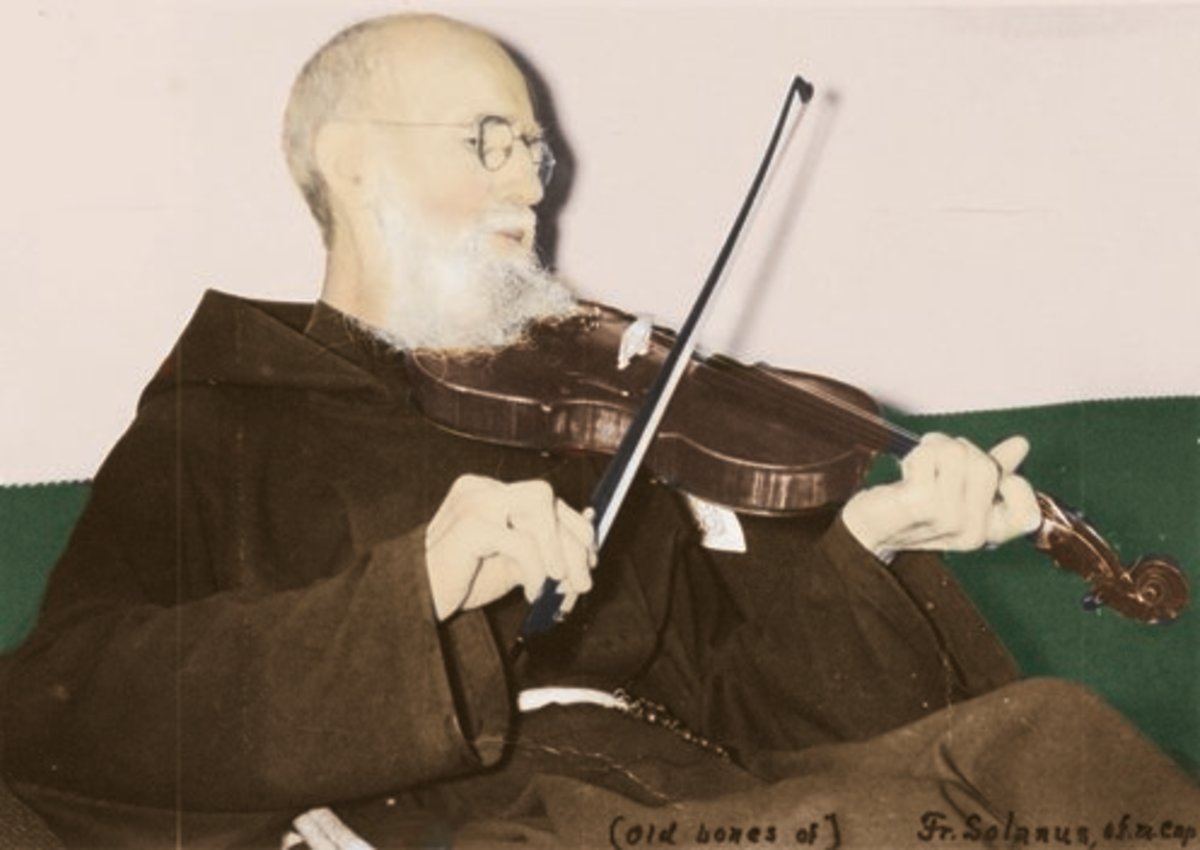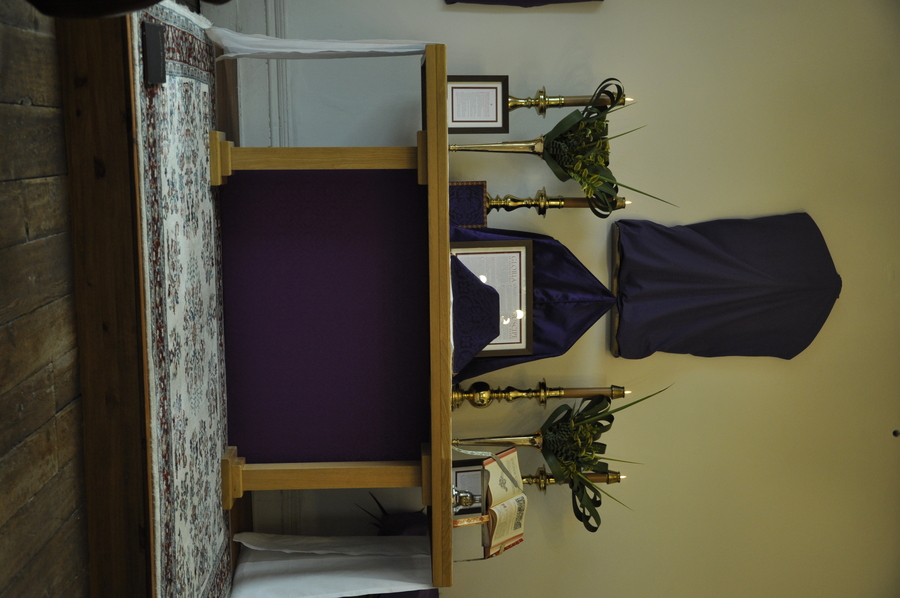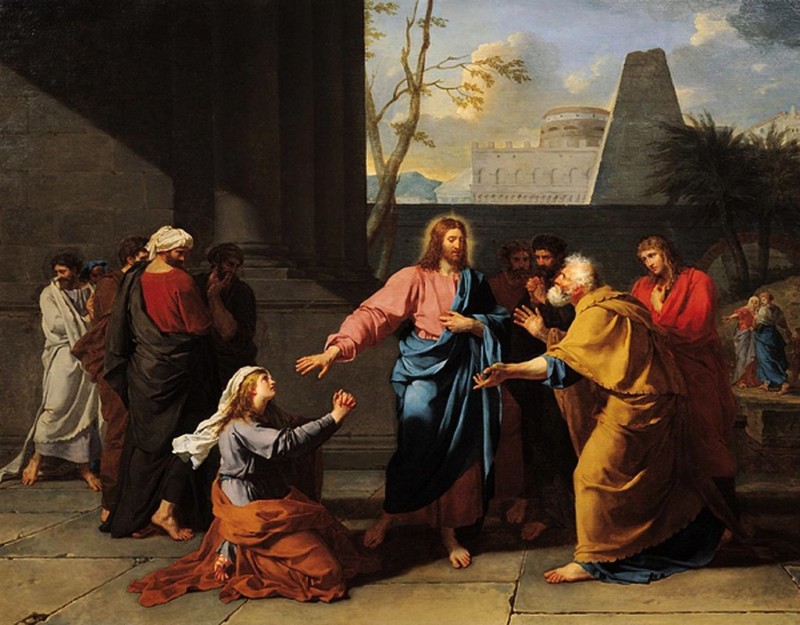Thank God ahead of Time – Mass for Thursday after Ash Wednesday
Blessed Solanus Casey
Blessed Solanus Casey used famously to tell those that would come to him with any sort of trouble, “Thank God ahead of time!”
He by no means meant to teach some sort of magical trick to get God to do their will. It was quite the other way around! He would teach those that came to him suffering to say, “Blessed be God in all His designs.” They were to thank God ahead of time not so much for granting them their favor, but rather for His Holy Will. 
And yet again and again those that did this were surprised to see their needs met and their prayers answered, oftentimes in seemingly miraculous ways! When we surrender to God in a spirit of thanksgiving, we oftentimes discover, to our delight, that rather than willing to increase our cross, He wills to alleviate it, and, when He does not, He gives the strength to bear it, and the confidence that the cross is, in truth, His most precious gift.
Mass for the Thursday after Ash Wednesday
Yesterday at Mass at the monastery, we pleaded with God with words and melodies full of pathos and compunction, saying: Have mercy! Grant pardon for all sins! Pour out the spirit of compunction and establish what Thou grantest forever! (From the prayers over the ashes)
We stirred up our hearts, singing: Let us change ourselves in habit, for the Lord is merciful. Let the priests weep before the altar, let them cry, spare, O Lord, spare Thy people. Let us amend for the better, for we have sinned. Help us our God, for the glory of Thy Name, deliver us! (From the chants at the distribution of ashes).
Today the tone is entirely different. It is strangely confident, as if all our prayers had already been answered. Let’s take a closer look at a few key texts.
Introit
When I called upon the Lord, He heard my voice from those who war against me; and He humbled them, Who is before all ages and remains forever. Cast thy care upon the Lord, and He will nurture thee.
Notice the completed tense of this. The one speaking has already been through this, and now he is assuring us that we will be nurtured (or fed) like he was.
Epistle
The Epistle is the story of Hezekiah who was told by Isaiah that he was about to die. He did exactly what the voice of the Introit recommended: he cast his care upon the Lord and the Lord relented.
Then Hezekiah turned his face to the wall and prayed to the Lord: O Lord, remember how faithfully and wholeheartedly I conducted myself in Your presence, doing what was pleasing to You! And Hezekiah wept bitterly. Then the word of the Lord came to Isaiah: Go, tell Hezekiah: Thus says the Lord, the God of your father David: I have heard your prayer and seen your tears. I will add fifteen years to your life. I will rescue you and this city from the hand of the king of Assyria; I will be a shield to this city, says the Lord almighty.
Could not Hezekiah be the very one in the Introit reassuring us that God will answer when we call on Him? This idea is strengthened when we recognize that the Gradual repeats the text of the Introit, so the Epistle is walled on either side by this text of confidence.
Gospel
The Gospel gives us another example of a prayer answered. But this time it is not a man’s prayer for himself, but it is the intercession of one man for another.
When Jesus had entered Capharnaum, there came to Him a centurion, who entreated Him, saying, Lord, my servant is lying sick in the house, paralyzed, and is grievously afflicted. Jesus said to him, I will come and cure him. But in answer the centurion said, Lord, I am not worthy that You should come under my roof; but only say the word, and my servant will be healed.
Jesus, of course, heals the servant. Is it the centurion who is speaking to us in the Introit? Or perhaps the healed servant?
Offertory
Most translations miss what the Offertory says in Latin. They will translate the Offertory as: “To you I lift up my soul” In fact, the Latin has the verb in the completed tense.
To You, O Lord, I lifted up my soul: in Thee, O my God, I trust; I shall not be put to shame. May my enemies exult not over me. No one who hopes for Thee shall be put to shame.
We can imagine this as the prayer of confidence of one who who already has the experience of having prayers answered. Since it is put in the Offertory, we can see the ‘hoping for’ (or ‘waiting for’ or ‘looking to’) mentioned in the last part as a reference to the Most Holy Eucharist.
Communion
The Mass ends with a strong message of hope.
Thou shalt be pleased with the sacrifice of justice, offerings and holocausts on Thine altar, O Lord.
The Sacrifice of Justice is, of course, first and foremost the Mass that we have just offered, and then the way in which our life becomes a Mass, to borrow Pope Benedict’s idea of true and actual participation in the Mass (Sacramentum Caritatis, 64). The Communion verse, then, brings us joy to realize that the Divine Victim of the Altar is acceptable, and our participation in It is too.
Back to Thanksgiving
Yesterday’s Mass was marked by supplication. Today, in turn, it is as if all our prayers have been heard, and we march on with confidence and deep thanksgiving.
But why not? In Christ Jesus we are more than conquerors, and the battle is already won. God is already eager to hear our prayers this Lent and accept our sacrifices, and why should we not be confident and thankful? The very God who heard the prayers of Hezekiah and of the centurion is the God whose ears are poised to hear yours.
Let us then begin this Lent with thanksgiving, and remember each day to thank God ahead of time for the graces He has for us this Lent. We can be confident in those graces, even now at the beginning.


